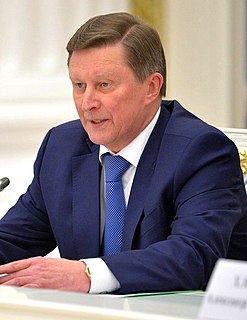A Quote by Chris Alexander
In 2007 and 2008, it was impossible to get American and British policy makers, or Pakistani politicians, to acknowledge that the Taliban leadership was in Pakistan. This is the great virtue of the early statements of the Obama administration, when Obama himself, Richard Holbrooke and others, said that the threat to both countries comes principally from western Pakistan, in Balujistan and Waziristan. So there has been some progress, but probably the hardest part is yet to come.
Quote Topics
Acknowledge
Administration
American
Been
Both
British
Come
Countries
Early
Get
Great
Hardest
Hardest Part
Himself
Impossible
Leadership
Makers
Obama
Obama Administration
Others
Pakistan
Pakistani
Part
Policy
Policy Makers
Politicians
Progress
Richard
Said
Some
Statements
Taliban
Threat
Virtue
Western
Related Quotes
My father's from Pakistan and he has been a secularist all his life. In the Pakistani context, there's no messing with religion. There's been a battle for the soul of Pakistan since 1947 and I have grown up without any illusions about the dangers of religious power in the context of a country like Pakistan.
Pakistan is alarmed by the rising Indian influence in Afghanistan, and fears that an Afghanistan cleansed of the Taliban would be an Indian client state, thus sandwiching Pakistan between two hostile countries. The paranoia of Pakistan about India's supposed dark machinations should never be underestimated.
Some Pakistanis fought for the Taliban. Pakistani extremist groups provided infrastructural support to Al Qaeda. There was a coming and going of Al Qaeda militants and leaders between Afghanistan and Pakistan for several years. All that has really happened is that Al Qaeda has escaped from Afghanistan come into Pakistan, got in touch with their contacts and friends in these extremist groups, which then provided them with safe houses, cars, and not just in the border areas but also in the cities. Rooting out Al Qaeda in Pakistan now is where the main battle is being fought.
Three American presidents-Dwight D. Eisenhower, John F. Kennedy, and Lyndon B. Johnson-have asked the question: What do we get from aiding Pakistan? Five-Jimmy Carter, George H. W. Bush, Bill Clinton, George W. Bush, and Barack Obama-have wondered aloud whether Pakistan's leaders can be trusted to keep their word.
What is common among all of these groups [Taliban, Islamic State etc.] is the intent to destroy. The majority of terrorists who come to Afghanistan are from China, Russia, Uzbekistan, Kazakhstan, Saudi Arabia, Pakistan or North Africa. They were expelled from their countries and pushed to ours - this is their battlefield - and all of them, be it the Taliban or others, are interlinked with the criminal economy.
Pakistan always seems to have a lot of political complexities and political challenges. But Pakistan is important for a number of reasons. Primarily, it is a nuclear power. And if, in fact, al Qaeda and Taliban, which are in Pakistan and causing a lot of tragedies and deaths in Pakistan - if they would ever somehow have real influence and control of that government, then we [world] really have a problem.
Leadership is absolutely vital if there are comparable countries which can affect the security of the world you live in. Between Lincoln and Roosevelt's time, America was protected by huge oceans and, in practice, by the British navy. Today, it's different, and the obsession of the Obama administration has been for retrenchment.


































